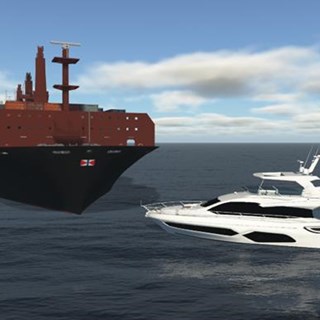
15 July 2025
It is difficult when analysing the research to not question why Complex Change and Transformation Programmes continue to have a troubled reputation. Whilst the possible causes of failure can often seem endless, there is normally one common denominator: the people. Considering that every organisation will need to go through these programmes, whether forced through external circumstances or internally developed to meet business goals, it is necessary for companies to have support in addressing the barriers to change and transformation.
‘the leading causes of failure are employee resistance and management behaviours that do not support the desired change.’ Blackburn et al1
Large-scale transformations often focus most effort on defining the problem at hand and funnelling resource into designing and implementing a new tool or way of working. This does not consider the fundamental behaviour shift that needs to underpin any successful change. In order to succeed, a complex change and transformation process needs to address the behavioural shift in a way that supports people to embrace change, reduces resistance and breaks the cycle of self- defeating2 behaviours. More importantly, the change process needs to provide people with the skills to take ownership, to problem solve themselves and build healthy mindsets that lead to innovation, creation, and satisfaction.
In the past decade, BMT’s consulting teams have supported our clients change and transformation needs across the public and private sectors. Our reviews have shown the greatest impact and success has been achieved where structural and programmatic approaches are supported by attention to the cultural and behavioural aspects of change.
Coaching is a proven tool to support change leaders and their teams; by clarifying goals and introducing accountability for their achievement, it serves to address resistance and to build a workforce that is able to adapt and embrace change.
In today’s business environment change is often unexpected, turbulent, and challenging. For any chance to remain competitive, organisations need to be able to react, adjust and evolve to the changing market. However, if an organisation wants to be truly efficient and successful in their ability to manage change, to be able to make it a hallmark of their identity, they not only need to be able to handle it, but be willing to embrace it. When faced with complex change – one with a number of interrelated parts, where the relationships have yet to be fully understood and therefore an increased uncertainty around their connection – it is more critical than ever to fully engage with the change process, or risk widespread business failure.
Working with its Business Strategy and Transformation capability, BMT has invested to introduce coaching as a structured element of its approach to change and transformation (set out below). This directly addresses the leading cause of failure from employee resistance and management behaviour. This is not to say that employees or management are at fault, or they are consciously blocking the organisations’ ability to implement change, but that they are not all engaged with or fully integrated into the change process.
Research by the European Mentoring and Coaching Council (EMCC)3 underlines the value of coaching to support the effective implementation of change and transformation programmes. Results showed that the delivery of a Leadership Coaching Program was attributed with creating ‘significant positive change’ at the individual, team and organisational level, with coaches believing the ‘Business Principle’ most impacted being ‘strengthening their capacity for change’ and the most significant organisational impact was on the ability to ‘enable and support people.’ This shows a clear association between the delivery of coaching interventions and the ability for employees, as well as the organisation at large, to be prepared for and able to successfully undertake change and transformation.
According to EMCC, coaching and mentoring is:
‘a professionally guided process that inspires clients to maximise their personal and professional potential. It is a structured, purposeful and transformational process, helping clients to see and test alternative ways for improvement of competence, decision making and enhancement of quality of life. Coach and Mentor and client work together in a partnering relationship on strictly confidential terms. In this relationship, clients are experts on the content and decision making level; the coach and mentor is an expert in professionally guiding the process.’4
We believe that coaching, in any form or purpose, should be:
The key to embedding coaching within an organisation is helping clients understand that coaches are not there to create an additional level of complexity or work, but to help them develop and become self-sufficient when faced with new challenges. By creating a workplace where employees feel supported and have a network of resources and advice that can help them transition to new ways of working, the organisation is also creating an environment where employees feel empowered to make positive changes. Ultimately, this will work to break down the resistance and change the fundamental mindset and behaviour of both the individual and wider team to improve performance.
Understanding that no single methodology aligns to every change programme (particularly a complex problem or transformation), including coaching in the approach requires an adaptive and bespoke engagement to prepare individuals to manage and support the change within the existing business framework. BMT uses the Prosci Methodology and its ADKAR5 model to show how coaching can be integrated into change management.
By supporting employees through each stage of the ADKAR process, organisations and their coaches can systematically address individual needs and barriers to change and equip their workforce with the tools and mindset necessary for a change programme. It creates a clear approach, yet allows for flexibility to meet the needs of each organisational/change context. It is key that whilst cohorts may be developing through the same ADKAR stage at the same time, the coaching intervention is tailored specifically to the individual – addressing their own barriers, motivators, knowledge gaps and skill application.

For BMT, it is necessary that our coaching offering reflects both the need to support individuals through the process as well as take account of the long-term impact at a strategic level, looking at how individuals’ actions have a wide-spread effect on the business at large. It is through this approach that we are able to underpin successful change and transformation programmes as we address directly the single most likely cause of failure: peoples’ behaviour and their resistance to change.
The challenge we most often see from our clients: The client is struggling with complex transformation due to a lack of clarity and engagement around change management strategies, leading to resistance from employees. These challenges are leading to inefficiencies, decreased morale, and ultimately hindering the achievement of strategic goals.
What we offer: The offer consists of four phases

The desired end state following coaching interventions: The client will be able to effectively address the challenges of complex transformation, supported by a new culture of continuous improvement and utilising increased employee engagement at all levels of the organisation. Leaders will show resilience to and acceptance of change, supporting their subordinates to foster the same ethos. Change management processes will be streamlined and embedded for a more effective and pro-active approach to change. The organisation will be more able to achieve their strategic objectives.
The most successful organisations adopt a coaching approach more broadly, outside of single change programmes, to develop the growth mindset which hallmarks the highest performing teams6/7.
Independent teams can contain high performers, but they can also contain a sense of competitiveness, and in this environment, it is easy to disengage, shut down others potential or close off new opportunities (instead only focusing on that which directly aligns to your promotion). Interdependent teams, however, do not tolerate a competitive environment, instead opting to work collaboratively with purpose and value. A key characteristic of these teams is coaching – creating a community and collective mind-set that are essential to a high-performance culture.
The popular phrase ‘Culture eats strategy for breakfast’ (often attributed to Management Consultant Peter Drucker) effectively encapsulates the notion that no matter how well researched and planned an organisation’s strategy is, it will unlikely be successful without a strong, purposeful and supportive company culture. It reinforces the fundamental aim of coaching, and the necessary component to a successful change and transformation programme: people are at the centre of business and unless they are engaged, motivated and supportive of the organisation’s goals, then implementing change is unlikely to be positive or effective.
Coaching has become an essential instrument in addressing employee resistance and improving management behaviour, helping to mitigate the complexities and challenges of change and transformation projects.

References

N/A
In a world where complexity is the norm and certainty is rare, adaptability isn’t a luxury, it’s a necessity. And when we combine it with empathy, structure, and a commitment to quality, we create programmes that deliver real, lasting value.

N/A
In a world where complexity is the norm and certainty is rare, adaptability isn’t a luxury, it’s a necessity. And when we combine it with empathy, structure, and a commitment to quality, we create programmes that deliver real, lasting value.

Tim Curtis
Most transformation programmes fail—not because of poor execution, but because they never truly understood the race they were competing in. The BMT Strategy Canvas changes that.

Will Roberts
At BMT, we believe simulation is a critical enabler in overcoming these hurdles—de-risking development, accelerating innovation, and building confidence across the entire lifecycle of autonomous systems.